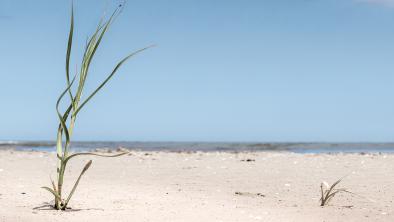Pale-green plan offers little new money to fight climate change
The Winnipeg Free Press

The premier promised it would be the greenest budget in Manitoba’s history, but the provincial government’s financial plan for next year includes very little new program spending to deal with climate change.
The province made its Green Levy carbon tax the focus of the "climate and green measures" it announced in its latest budget, projecting the tax will bring in $284 million in revenue for 2021-22 after it comes into effect July 1.
The $25-per-tonne surcharge on certain types of fuel consumption is meant to be applied only to carbon emissions that occur in Manitoba and aims to protect the province’s agriculture industry with tax exemptions. The levy is the main environmental measure included in the budget, although the provincial government has said it has the best climate and green plan in Canada.
"The government isn't showing any leadership whatsoever on the environment. It's reprehensible to have the Manitoba government keep telling us that they are the cleanest and greenest," Reder said.
The province has now devoted $40 million to its "Made in Manitoba Climate and Green Fund," the same level of funding it provided to that program in 2019-20.
Asked about the government’s investments to deal with climate change in the 2020-21 budget, Finance Minister Scott Fielding pointed to previously announced funds, most of which were already earmarked for 2019-20, including those designated for cleaning up abandoned mines and preserving wetlands.
"I would suggest the Green Levy is a part of it," Fielding told reporters last week during the budget briefing process, which couldn’t be made public until the budget was officially released Thursday. He said he believes the levy, which Premier Brian Pallister’s government has described as the best carbon-tax-type plan in Canada, "has the potential to change behaviours."
When pressed to identify a new climate-change-related project in next year’s budget, Fielding emphasized the province is setting up conservation trust funds worth more than $150 million to protect wetlands. Those trusts will also function like endowment funds to address climate-change issues, Fielding said. The funds were announced last month and budgeted in 2019-20.
"We have made… we think, important investments, things can have a real impact on Manitobans’ life. A lot of these things are smaller measures too, you could have, you know, banning plastic bags, these are all things that we think will make a difference for Manitobans," he said.
Asked for more information on new climate-change programs, Finance Department officials pointed to dollars devoted to waste and recycling, as well as the creation of a new $250,000 energy policy under the Climate and Green Plan Implementation Office, which is meant to carry out the province’s climate policy. The new budget also adds a $3-million contingency fund for reducing lead exposure.
They noted it’s difficult to tally Manitoba’s total climate-change-targeted funding, which could involve several different departments and include things such as flood mitigation and emergency preparedness.
Eric Reder, wilderness and water campaigner with the Wilderness Committee, a charity that sets out to protect the environment, said the budget underlines the province's plan to use carbon-tax revenue to fund the promised PST cut. But it doesn't show meaningful action to invest in the environment or set a zero-emissions target, which he said should be priorities for Manitoba.
"The government isn't showing any leadership whatsoever on the environment. It's reprehensible to have the Manitoba government keep telling us that they are the cleanest and greenest," Reder said.
"They're demonstrating that they do not believe in climate action."
Twitter: @thatkatiemay
To view the original article published by The Winnipeg Free Press please click here.


